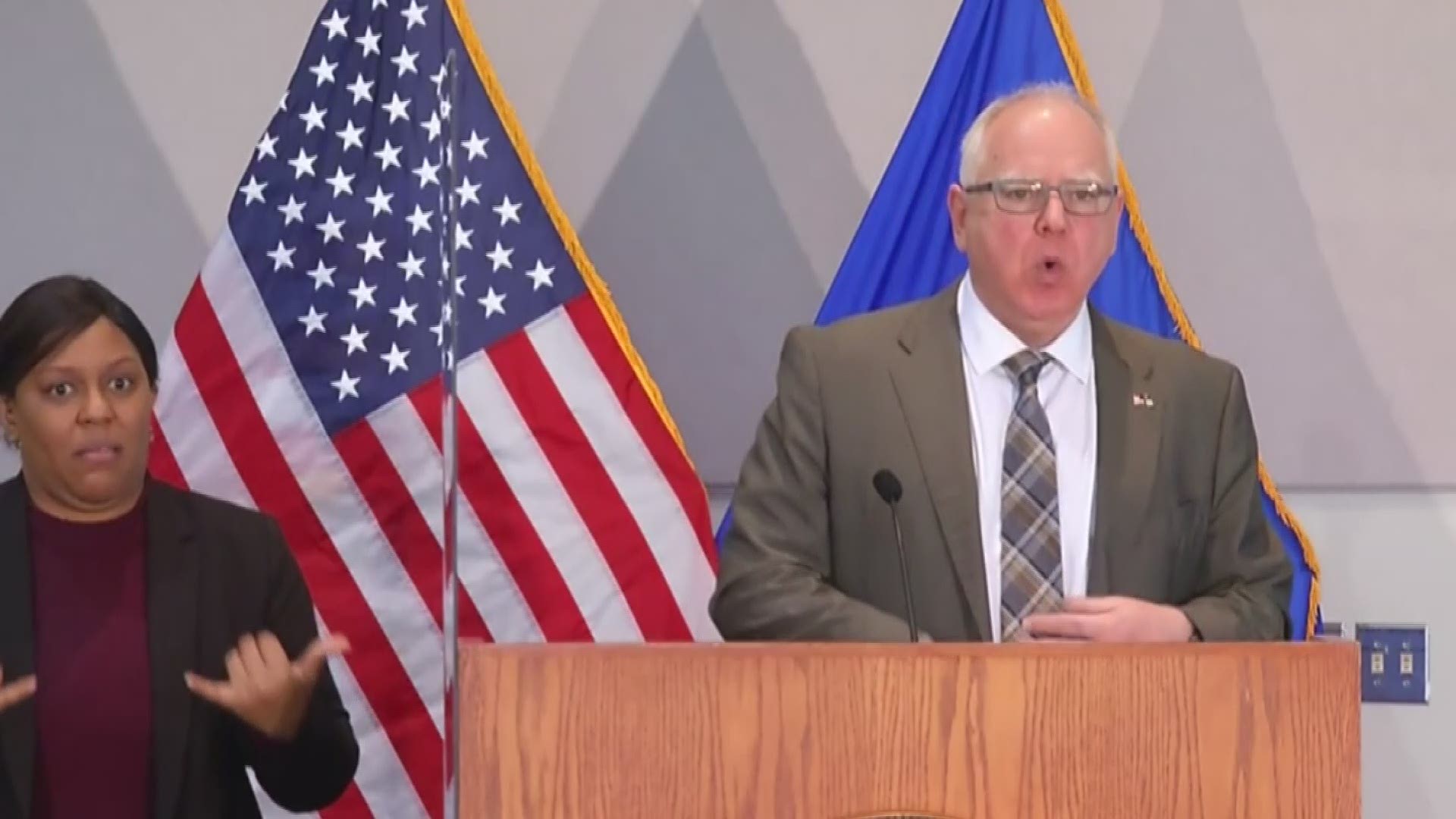ST PAUL, Minn. — The Minnesota Senate Monday passed a bill with the Derek Chauvin trial in mind, that would make sure cities that help Minneapolis with that event are ultimately paid for their efforts.
It creates a $20 million state fund that could be used to reimburse cities that send officers as part of mutual aid to other cities, to help with major events, such as riots, explosions and mass shootings. The money would be used in situations where the host city is unable to repay other government agencies for mutual aid in a timely manner.
"The fact we can do something, I think it's important to send that message ahead of the upcoming trial," Senate Majority Leader Paul Gazelka told colleagues during Monday's debate.
It's the GOP-controlled Senates latest response to a call by DFL Gov. Tim Walz for a $35 million account he dubbed the SAFE Fund, which stands for State Aid For Emergencies. Earlier in the session the Senate passed a bill that would dock the City of Minneapolis's Local Government Aid payments to reimburse law enforcement agencies that assist the Minneapolis Police Dept. in mutual aid situations.
But Monday's bill, authored by Republican Sen. Bill Weber of Luverne, also targets the City of Minneapolis for some financial pain. The bill would also strip Minneapolis of $12 million in disaster relief money already received.
It's why Democrats didn't support the measure for the most part, and why DFL Senator Scott Dibble of Minneapolis decried the bill as violating the spirit of one Minnesota.
"I stand up in dismay and shock and disappointment, and the disrespectful manner in which I feel treated by the majority party in ambushing us on a day of tremendous consequence and potential tension in my community," Sen. Dibble remarked, referencing the start of the Derek Chauvin trial in Hennepin County District Court in Minneapolis.
Dibble explained that it's wrong to punish the taxpayers of Minneapolis for actions they had no control over and noted that more than half of those arrested in the riots were from places outside of the city.
How Mutual Aid normally works in Minnesota:
If City A has a crisis, cities B, C and D send help. And when things settle down City A pays them back for police overtime and other expenses they incur helping out with the event.
But what if City A is strapped for cash and is slow repaying those cities? The plan envisioned by Gov. Walz, and the bill passed by the Senate, would allow Cities B, C and D to get paid from the state account – called SAFE Fund by the governor and "Law Enforcement Operations Account" in the Senate bill.
The controversial part of the Senate's latest bill involves a different fund that already exists in Minnesota government, designed for communities that experience natural disasters while the legislature isn't in session.
The DACA fund – Disaster Assistance Contingency Account – was created to eliminate the need for bringing the legislature back to St. Paul to pass disaster aid after floods or fires or crippling snowstorms.
The mutual aid bill passed Monday by the Senate would, if signed into law, make it clear that catastrophes caused by civil disorder – such as last summer's riots in Minneapolis and St. Paul – can't be considered "disasters" for the sake of the DACA fund.
That change would be made retroactive to Jan. 1, 2020 to ensure Minneapolis can't draw on the DACA fund to offset the city's costs from the 2020 riots.
The problem is Governor Walz already gave $12 million from the DACA account to the City of Minneapolis. So, the effect of the Monday's Senate bill would be to reverse that, and Minneapolis to return $12 million to the disaster account.
Republicans said most lawmakers never intended that account to cover manmade calamities such as the riots that destroyed or damaged 1,500 businesses in commercial corridors following George Floyd's death in police custody.
The GOP notes that the author of the House version of the bill that excludes civil unrest from disasters is written by Democrat Rep. Gene Pelowski of Winona.

